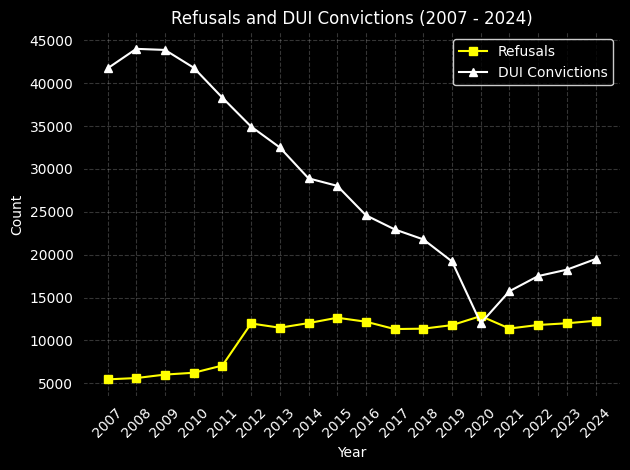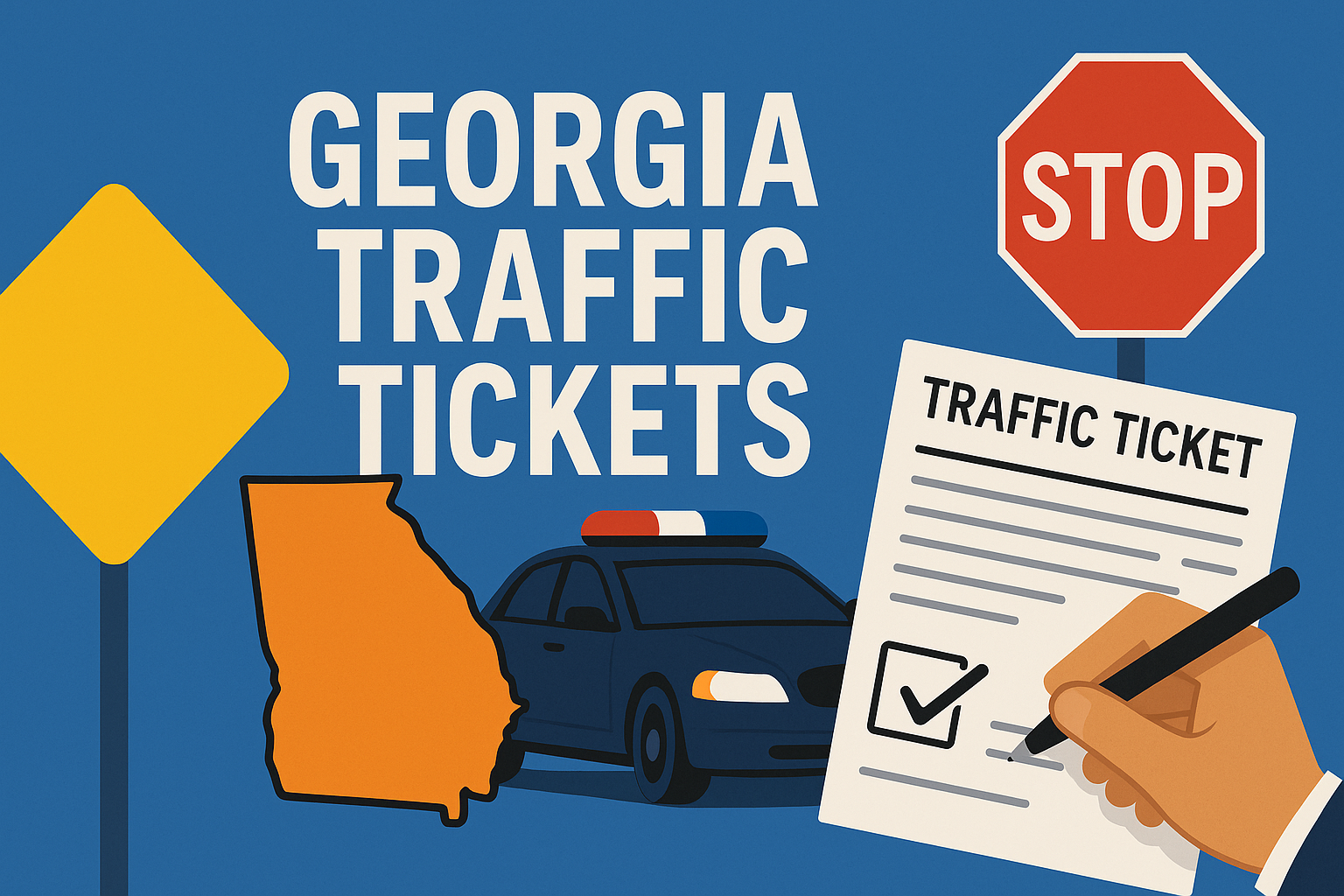The headline sounds good: DUI convictions in Georgia have plummeted from 41,739 in 2007 to just 19,497 today—a dramatic decline. But a deeper dive into Georgia Department of Driver Services (DDS) data on administrative license suspensions, test refusals, and DUI convictions—by county and statewide—reveals a story that’s far less uplifting.

Convictions vs. Refusals: A Silent Shift
Numbers tell a compelling tale:
- DUI arrests have fallen roughly 53%, from 41,739 in 2007 to 19,497 in 2024 most recently.
- Meanwhile, refusals to take DUI chemical tests have more than doubled, from 5,455 to 12,293.
This suggests a growing pattern: many suspected drunk drivers are sidestepping convictions—not through sobriety, but by declining chemical tests.
What’s Behind the Decline? Awareness vs. Evasion
Yes, public safety campaigns, stricter enforcement, and ride-share apps may have nudged down drunk driving. But the growing refusal rate hints at something more troubling: many drivers dodge accountability by refusing tests, which triggers administrative, not criminal, consequences. This doesn’t equal fewer tragedies—just fewer paper trails.
Now, about refusing to take a roadside test—this is where things get sticky. A lot of drivers think refusing the test means they can’t be convicted. It’s not that simple. Refusing a chemical test (like a breath or blood test) triggers Georgia’s “implied consent” law, which means your license gets suspended for a year—no questions, no conditional permit. That’s often worse than what happens if you take the test and get convicted. A first-time DUI conviction comes with a 12-month license suspension too, but you’re eligible for a limited driving permit in most cases. So paradoxically, refusing the test can hit harder and offer fewer options. Plus, prosecutors can argue that refusal implies guilt. It’s a gamble, and not always one that pays off.
Reality Check: Crashes & Fatalities Remain Alarming
If DUI convictions truly reflected safer roads, DUI-related crashes and fatalities would drop. Georgia, however, remains among the worst states. Data suggests that Georgia is the the ranks 6/50 for the worst DUI-related crash stats.
- Alcohol-impaired fatal crashes made up 24–28% of all traffic deaths between 2018–2022.
- Georgia ranks near the top nationally in DUI fatalities per 100,000 residents—about 3.6 deaths, placing it among the worst in the nation.
| State | DUI Accidents Per 100k | Rate |
|---|---|---|
| Texas | 8,500 | 29.2 |
| California | 10,500 | 26.6 |
| Florida | 6,000 | 27.8 |
| North Carolina | 3,000 | 28.7 |
| Pennsylvania | 3,500 | 27.3 |
| Georgia | 2,800 | 26.1 |
| Ohio | 3,100 | 26.3 |
| Illinois | 3,400 | 26.8 |
| Michigan | 2,600 | 25.8 |
| New York | 4,900 | 25.3 |
These numbers expose a grim reality: lower convictions haven’t translated into safer roads.
What’s Fueling This Disconnect?
- Test Refusals & Administrative Suspension Loopholes
Refusal means an immediate (but non‑criminal) administrative suspension—not a DUI conviction—yet drivers still often return to roads without full criminal accountability. This shift inflates “safe” stats without reducing harm. - Court Backlogs & Enforcement Gaps
Law enforcement is overextended; courts struggle to process DUI cases. This combination lets many offenders slip through before ever seeing conviction. - Behavior Remains Dangerous
Declining conviction rates don’t reflect improvements in driver behavior. Georgia’s DUI-related deaths remain stubbornly high, undermining claims of safer roads.
Bottom line: Georgia’s DUI convictions dropped by more than half—but test refusals doubled as convictions declined—and DUI fatalities remain disturbingly high. That tells us driver behavior hasn’t changed much. Instead, the system is failing to hold offenders accountable. Without structural changes to enforcement and prosecution, the reduced numbers mask a dangerous, ongoing problem.
About The Ticket Clinic Georgia
At The Ticket Clinic, we dig into the data so Georgia drivers get clarity. Our firm in Georgia brings decades of experience and a powerful, team‑based approach to DUI defense. Our attorneys are trained to scrutinize every piece of evidence—whether it’s the legality of the traffic stop, the conditions under which sobriety tests or breath machines were administered, or nuances in implied consent. If you’re facing a Georgia DUI charge, reach out for a consultation today.



